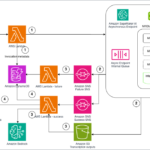A new study has linked the use of GLP-1 drugs and metformin to a lower risk of developing certain obesity-related cancers in patients with Type 2 diabetes.
The study, which was published Friday on the JAMA Network Open website, showed that patients taking GLP-1 drugs or metformin showed a significantly reduced risk of developing ten cancers associated with obesity than those who took insulin. Researchers noted, however, that GLP-1s didn’t appear to lower the risks any more than metformin.
Statistically significant risk reductions were observed in GLP-1 users for gallbladder cancer, meningioma, pancreatic cancer, hepatocellular carcinoma, ovarian cancer, colorectal cancer, multiple myeloma, esophageal cancer, endometrial cancer and kidney cancer.
The study was based on an analysis of the electronic healthcare records of roughly 1.7M patients with type 2 diabetes who were prescribed a GLP-1 drug, metformin or insulin between 2005 and 2018.
The GLP-1 drugs included in the study were first-generation medications such as Novo Nordisk’s (NVO) Victoza. The study also included Novo’s Ozempic, which was approved by the FDA for diabetes in 2017, but not Eli Lilly’s (LLY) Mounjaro, which was approved in 2022, according to Bloomberg.
Ozempic and Mounjaro are also marketed for weight loss under the names Wegovy and Zepbound, respectively. Metformin, which has been on the market for years, is available in generic formulations.
Novo Nordisk (NVO) and Eli Lilly (LLY) are currently the leading marketers of GLP-1 drugs for diabetes and weight loss. Other companies working on GLP-1 therapies include Viking Therapeutics (VKTX), Structure Therapeutics (GPCR), Altimmune (ALT), Zealand Pharma (OTCPK:ZLDPF), Roche (OTCQX:RHHBY), Pfizer (PFE) and Amgen (AMGN).










